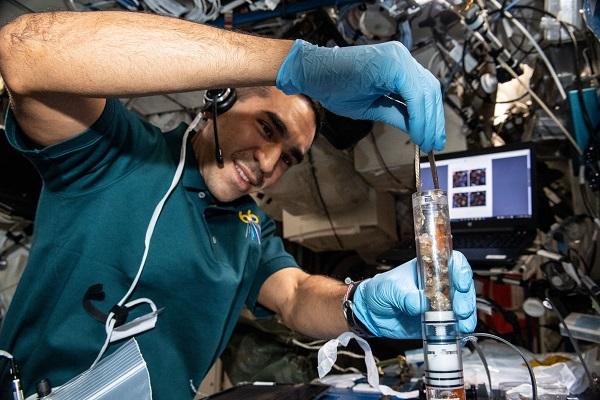
Space startups raised a record-setting $550 million in private and public capital and grant funding during the first quarter of fiscal 2022 following their first flights to the U.S. National Laboratory aboard the International Space Station (ISS), according to the latest annual report from the organization that supervises station research.
The full-year 2022 total of $658 million raised by startups brings the cumulative total over the U.S. National Lab’s lifetime to more than $1.8 billion. When companies awarded National Lab flight project access that have not yet launched are added, the total for fiscal 2022 reaches $714 million and the cumulative total nearly $2 billion.
“The ISS National Lab’s investor network has grown to include 278 venture capital, private equity, corporate, angel, and other financial investors,” according to the 23-p. annual report from the Center for Advancement of Science in Space (CASIS) Inc.
“To date, CASIS has facilitated more than 1,200 capital introductions between startups and investors in the ISS National Lab network, with FY22 being one of the most active years of such activity,” the report says.
The ISS National Lab was established by Congress as part of the 2005 NASA Authorization Act. In 2011 NASA contracted with CASIS, a Melbourne, Florida-based nonprofit, to provide access to NASA research volume and other science and technology assets aboard the seven-person ISS to non-NASA government agencies, academia and the private sector. In September 2022, NASA’s management agreement with CASIS was extended from 2024 to 2027 and annual agency funding increased from $15 million to $17 million.
NASA and CASIS intend to continue to encourage scientific research and innovation and associated growth in a low-Earth-orbit economy through the National Lab as the space agency works to transition its ISS activities to commercial free and bring ISS operations to a close at the end of 2030.
The 2022 annual report acknowledges challenges linked to what it characterized as significant recent changes in macroeconomic and geopolitical conditions, including diminished access to venture capital.
While peaking at the end of the 2021 calendar year, overall U.S. investment activity had declined by 52% year over year by the third quarter of 2022.
“Space startups saw similar trends,” the CASIS report said.
Even so, CASIS remains optimistic about the prospects for future investment, noting that 75 National Lab projects were launched to the ISS in fiscal 2022, raising the total across 11 years of CASIS management to more than 600. Eighty-five percent of the latest annual total came from commercial sponsors. Forty-six new projects were selected for launch over the same period.
The ISS National Lab also now counts 17 commercial service providers, which provide two dozen commercial assets to nurture research and technology development aboard the ISS. Among the most recent are Space Tango’s Tango lab facility and Nanoracks’ mobile Bishop Airlock.
Axiom Space also carried out its first private astronaut mission to the ISS in April 2022, a 17-day roundtrip by four fliers that included 26 science investigations. The follow-on Axiom-2 mission is planned for this spring.
Despite a drop in National Lab access to the ISS over the 2022 report period due to a decline in the number of NASA-contracted commercial resupply missions from five to three, the amount of crew time available to carry out the research and technology objectives dropped only slightly.
The effort led to the publication of 49 peer-reviewed research studies, an annual record that brought the ISS National Lab’s total to more than 200.
CASIS noted the granting of two patents during the report period—one to Hewlett Packard Enterprise for an electronic cooling system and one to Redwire subsidiary Made in Space for a sensor system for enhancing fiber-optic production in space.
The report also cites several examples of research underway that could have broad applications on Earth. They include efforts by pharmaceutical company Merck to advance its Keytruda chemotherapy cancer treatment, by LambdaVision to develop an artificial retina for human transplant, and MicroQuin to develop a new therapeutic to treat breast and prostate cancer.
